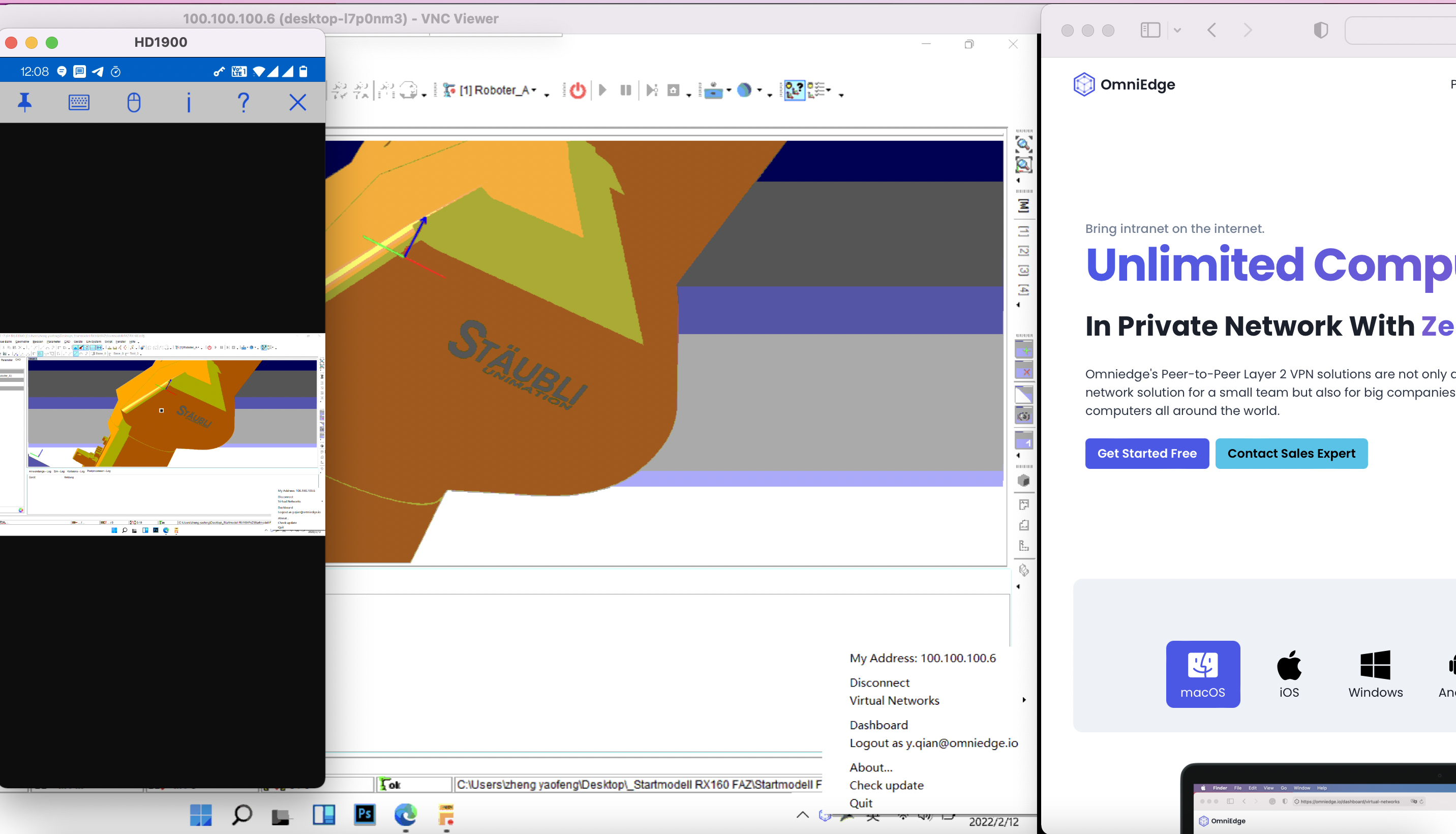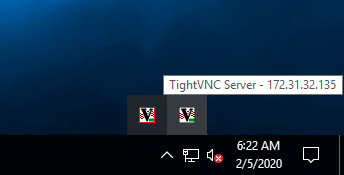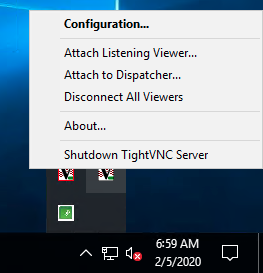Docs
Doc / Cases / VNC
Display and control macOS, Linux and Windows with Omniedge
In computing, Virtual Network Computing (VNC) is a graphical desktop-sharing system that uses the Remote Frame Buffer protocol (RFB) to remotely control another computer. It transmits the keyboard and mouse input from one computer to another, relaying the graphical-screen updates, over a network. VNC is platform-independent – there are clients and servers for many GUI-based operating systems and for Java.
Multiple clients may connect to a VNC server at the same time. Popular uses for this technology include remote technical support and accessing files on one's work computer from one's home computer, or vice versa.
With OmniEdge, VNC can have a wonderful feature, replace expensive tools by OmniEdge's peer-to-peer network, remote control computres from anywhere, anytime.
VNC's features include:
- Remote Control
- Cross-platformm, PC to PC, Mobile to PC across Windows, Mac, Linux, iOS, and Android.
- File transfer
- And More

Requirements
Install OmniEdge for your macOS, linux, or windows, and on your android devices. Read the OmniEdge Installation Instruction to install OmniEdge.
Install VNC Servers and Clients, you can use TightVNC or REALVNCfor windows.
Install TightVNC for Windows
Download TightVNC, and install it. TightVNC runs on any version of Windows.
You can refer the Doc: TightVNC for Windows: Installation and Getting Started (PDF) to install and get TightVNC running.
Install TightVNC。
For Windows 64bit:tightvnc-2.8.27-gpl-setup-64bit.msi
For Windows 32bit: tightvnc-2.8.27-gpl-setup-32bit.msi
Double click and follow the instructions to install.
Run and Setup TightVNC Server。
After run TightVNC Server, you can see a tray icon,:

Setup the password for remote control by right clicking the tray icon of TightVNC Server:

Click Configuration Menu, Set the password and remember

Install TightVNC for Ubuntu 20.04 Server
sudo apt update
# install the Desktop Environment xfce4 if not installed
sudo apt install xfce4 xfce4-goodies -y
sudo apt install tightvncserver -yRun the vncserver command to set a VNC access password, create the initial configuration files, and start a VNC server instance:
vncserverYou need setup password after for vnc login.
The app launches a default vnc server instance on port TCP 5901 which is a display port, and is referred to by VNC as :1. VNC can launch multiple instances on other display ports, with :2 referring to port 5902, :3 referring to 5903, and so on.
You can stop vncserver by running vncserver -kill :1.
vncserver -kill :1Run VNC Server as a service
sudo vim /etc/systemd/system/[email protected]Paste the below text:
#/etc/systemd/system/[email protected]
[Unit]
Description=Start TightVNC server at startup
After=syslog.target network.target
[Service]
Type=forking
User=ubuntu
Group=ubuntu
WorkingDirectory=/home/ubuntu
PIDFile=/home/ubuntu/.vnc/%H:%i.pid
ExecStartPre=-/usr/bin/vncserver -kill :%i > /dev/null 2>&1
ExecStart=/usr/bin/vncserver -depth 24 -geometry 1280x800 -localhost :%i
ExecStop=/usr/bin/vncserver -kill :%i
[Install]
WantedBy=multi-user.targetSave the file, and make the service run by :
sudo systemctl daemon-reload
sudo systemctl enable [email protected]
vncserver -kill :1
sudo systemctl start vncserver@1
sudo systemctl status vncserver@1The 1 following the @ sign signifies which display number the service should appear over, in this case the default :1. you can run :2 with sudo systemctl enable [email protected].
The VNC port of ubuntu is 5901 for :1 or 5902 for :2
Installing OmniEdge Windows
You need install omniedge on every machine you want to connect, here we take windows for example. If you remote computer is using a different OS, please refer OmniEdge Download to download related version of OmniEdge.
OmniEdge Windows is compatible with Windows 7,10(arm) & Windows Server 2016,2019. Last update: Version 0.2.2, January 16,2022.
Download OmniEdge Windows for 7 or later
Download and run the Windows installer
Click on "Log in…" from the Omniedge icon now in your system tray
Sign in with your email address
Click "Connect" in the menu bar from the tray icon. After a pop-up disappears, a secure VPN connection is initialized.
Remote Control a friend's Computer
You can invite your friend to your virtual network, and remote support and control your friend's computer through VNC. You friend's computer needs to install VNC and running OmniEdge as well.

If you have more questions, feel free to discuss.
On This Page